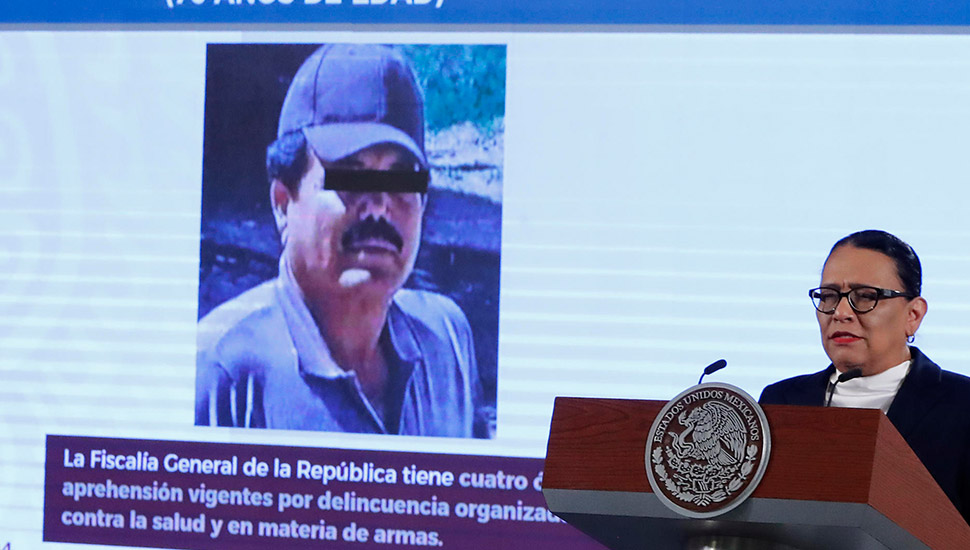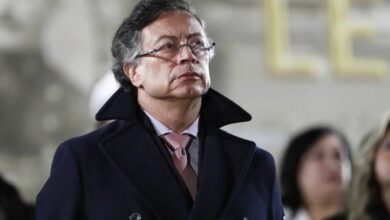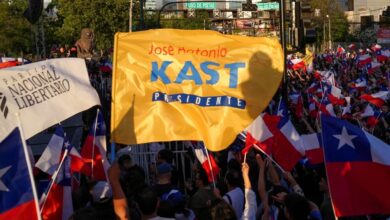Mexican Sinaloa Cartel Chief’s Arrest Sparks Controversy and Investigation

The recent arrest of Sinaloa Cartel chief Ismael “El Mayo” Zambada has ignited controversy and a federal investigation in Mexico, with conflicting reports about the involvement of Joaquin “El Chapo” Guzman’s son.
In a dramatic turn of events, Mexican authorities have launched an investigation into the circumstances surrounding the arrest of Sinaloa Cartel chief Ismael “El Mayo” Zambada. Zambada was apprehended last Thursday near El Paso, Texas, after landing in a small plane originating from Mexico. Reports from Reuters and other news outlets, citing anonymous U.S. officials, suggested that Zambada might have been deceived by a son of former Sinaloa Cartel leader Joaquin “El Chapo” Guzman, who allegedly orchestrated his surrender to authorities.
According to these reports, Joaquin Guzman Lopez, the son of the notorious drug lord El Chapo, played a key role in delivering his father’s former partner to U.S. authorities. However, Zambada’s lawyer, Frank Perez, offered a starkly different account on Saturday, claiming that Zambada was violently kidnapped by Guzman Lopez and his associates.
Perez described a harrowing scene where Guzman Lopez and six men in military uniforms ambushed Zambada near Culiacan, a stronghold in Mexico’s Sinaloa state. They allegedly forced him onto a plane and transported him to the United States against his will. Despite these claims, Zambada pleaded not guilty to drug charges on Friday in a federal court in El Paso.
Mexican Government Response
Mexico’s security minister, Rosa Icela Rodriguez, announced on Monday that the federal Attorney General’s Office had initiated an investigation in the state of Sonora. The investigation aims to uncover any crimes that may have occurred during the flight’s departure and other related details. Rodriguez emphasized that the Mexican government was not involved in the operation and only learned of Guzman Lopez’s intention to surrender on the day of the arrests.
Mexican President Andres Manuel Lopez Obrador reinforced this stance at a press conference, stating that the country’s armed forces confirmed they had no involvement in Zambada’s capture. This assertion was made despite allegations from Zambada’s lawyer that men in military fatigues were part of the ambush.
During the same press conference, Rodriguez revealed that U.S. officials informed Mexican authorities they were unaware that both drug traffickers were on the aircraft. She further clarified that U.S. officials stated the flight was not planned by any U.S. agency, although American agents were aware of Guzman Lopez’s previous intention to surrender.
Contradictory Narratives
The arrest of Ismael “El Mayo” Zambada has generated conflicting narratives that have added layers of complexity to an already intricate situation. On one side, the reports suggesting a strategic maneuver by Guzman Lopez to hand over Zambada present a calculated move within the cartel’s power dynamics. On the other hand, Zambada’s lawyer’s claims of a violent kidnapping introduce elements of betrayal and coercion.
These divergent accounts have significant implications for understanding the internal workings of the Sinaloa Cartel and the broader implications for law enforcement efforts against organized crime. The ongoing investigation by Mexican authorities seeks to clarify the true sequence of events and determine any potential criminal activities associated with the arrest.
Impact on Sinaloa Cartel
The capture of Zambada, a legendary figure in the Sinaloa Cartel, marks a significant development in the ongoing battle against drug trafficking organizations. Zambada has been a prominent figure in the cartel for decades, known for his strategic acumen and extensive network. His arrest represents a major blow to the cartel’s leadership, potentially triggering shifts in power dynamics within the organization.
The Sinaloa Cartel, one of the most powerful and influential drug trafficking organizations in the world, has faced increased pressure from law enforcement agencies in recent years. The arrest of key figures like El Chapo and now Zambada underscores the relentless pursuit of justice by authorities on both sides of the border.
Legal Proceedings and Future Implications
As Zambada faces legal proceedings in the United States, the outcome of his trial will be closely watched by both Mexican and international observers. The charges against him include significant drug trafficking offenses, which carry severe penalties. A conviction would not only have personal ramifications for Zambada but also serve as a symbolic victory for law enforcement efforts against the Sinaloa Cartel.
Moreover, the investigation launched by Mexican authorities will play a crucial role in uncovering the truth behind Zambada’s arrest. If it is determined that crimes were committed during the operation, it could lead to further legal actions and potential diplomatic tensions between Mexico and the United States.
International Reactions and Diplomatic Considerations
The arrest of a high-profile cartel leader like Zambada inevitably draws international attention and has implications for diplomatic relations between countries involved in the fight against drug trafficking. The cooperation between Mexican and U.S. authorities in combating organized crime is a critical aspect of bilateral relations, and incidents like this test the strength and effectiveness of that cooperation.
While U.S. officials have asserted that they were unaware of the dual presence of Zambada and Guzman Lopez on the plane, the situation highlights the complexities and challenges faced by law enforcement agencies in tackling transnational criminal organizations. The investigation’s findings will likely influence future collaborative efforts and strategies to combat drug trafficking and related crimes.
Media Coverage and Public Perception
The media coverage of Zambada’s arrest has been extensive, with various outlets providing differing accounts of the events leading up to his capture. The contrasting narratives have shaped public perception, contributing to the intrigue and speculation surrounding the case. As the investigation progresses and more details emerge, the media will continue to play a pivotal role in informing the public and shaping the narrative.
Public interest in the case extends beyond Mexico and the United States, given the global impact of drug trafficking and the notorious reputation of the Sinaloa Cartel. The arrest of a figure like Zambada, with his long-standing involvement in the cartel, captivates audiences and underscores the ongoing struggle against organized crime.
The arrest of Sinaloa Cartel chief Ismael “El Mayo” Zambada has sparked controversy and led to an official investigation in Mexico. The conflicting accounts of his capture, whether it was a strategic surrender orchestrated by Guzman Lopez or a violent kidnapping, add complexity to an already multifaceted situation. As the legal proceedings and investigation unfold, the implications for the Sinaloa Cartel, law enforcement efforts, and international relations will become clearer.
Also read: Cartel Monster Trucks and Mexico’s Battle Against Armored Warfare
This high-profile case serves as a reminder of the persistent challenges in combating drug trafficking organizations and the need for continued collaboration between countries to address transnational crime. The outcome of Zambada’s trial and the findings of the investigation will undoubtedly have far-reaching consequences for the future of the Sinaloa Cartel and the broader fight against organized crime.





